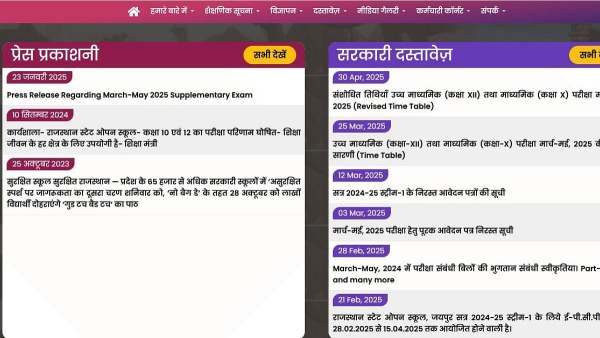

The Securities and Exchange Board of India’s (SEBI) board has approved a slew of amendments to boost Indian startup listings and promote reverse flipping.
At the 210th meeting in Mumbai, the market regulator’s board gave its nod to a proposal allowing startup founders to retain their stock options (issued a year prior to the IPO) even after their companies are listed, with certain caveats.
“The proposal approved by the board shall facilitate founders who received such benefits at least one year prior to the filing of DRHP with the board, to continue holding, and / or exercising such benefits even after being specified as the promoter/s and the company becoming a listed entity,” the SEBI said in a statement.
Currently, founders are classified as promoters at the time of filing DRHP, making them ineligible for employee stock option plans (ESOPs). As such, promoters are required to liquidate these stock options before listing.
Meanwhile, in a move aimed at fostering reverse flipping of startups, SEBI also extended the scope of relaxation pertaining to a minimum holding period of one year (for shares acquired following an approved scheme) to be eligible for the offer for sale (OFS) component.
Post the amendment, the regulator has made the exemption available for shares from conversion of compulsorily convertible securities (CCS) issued under such an approved scheme.
“This (non-exemption for CCS) has resulted in certain investors not being able to participate in the offer for sale in public issue. Extending the exemption to equity shares arising from conversion of fully paid-up CCS received pursuant to approved scheme will facilitate such participation. This will assist the companies contemplating reverse flipping,” said SEBI.
SEBI also approved a proposal to allow alternative investment funds (AIFs) and foreign venture capital funds (holding at least 5% of the post-issue capital or any entity forming part of promoter group other than the promoter(s)) to contribute equity shares arising from conversion of CCS towards the minimum promoter contribution requirement, apart from the promoters.
SEBI’s Boost For Co-Investment OpportunitiesThe regulator’s board also gave its nod to a proposal to permit Category I and Category II AIFs to offer co-investment (CIV) schemes.
For context, co-investment allows certain AIF investors to buy additional shares in startups in their individual capacity, besides investing in the company through the fund.
“A separate CIV scheme shall be launched for each co-investment in an investee company subject to safeguards to ensure that the scheme is used only for bonafide purposes… Certain regulatory requirements applicable to other AIF schemes shall be relaxed for CIV schemes… This policy initiative will allow Category I & II AIFs to facilitate co-investment to accredited investors through CIV scheme within AIF Regulations, in addition to the existing option for co-investment available through the PMS route,” said SEBI.
Commenting on the development, SKG investment & Advisory director Kush Gupta said that the move will bolster funding opportunities for startups and provide fund managers with additional capital.
“SEBI’s board meeting today marked an important step for asset management companies as the regulator decided to provide flexibility to AIFs… This will attract more investments in this asset class and provide opportunities to the sophisticated investor to participate with more conviction… It will provide fund managers with additional capital to look for more investment opportunities and deliver better on their performance,” added Gupta.
SEBI Tweaks Angel Fund RulesSEBI’s board also approved a proposal to overhaul the regulatory framework for Angel Funds under AIF regulations to enhance the “ease of doing business”. Under the new rules, angel investors will now have to be registered as “accredited investors”.
Angel backers will now have to independently verify their investor status in line with thresholds that align with market levels. Additionally, the board also approved a proposal to amend existing rules to include qualified institutional buyers (QIBs) “for the limited purpose of investments into Angel Funds only”.
Key features of the new regime include:
- Relaxation of floor for investment in a company to INR 10 Lakh from INR 25 Lakh previously. Similarly, the cap has been raised to INR 25 Cr from INR 10 Cr earlier
- Removal of concentration limit of 25% of total investments of angel funds in an investee company
- Allowing contributions from more than 200 accredited investors in an investment
- Enabling follow-on investment in an investee company which is no longer a startup
- Sponsor/ manager shall maintain a minimum continuing interest in each investment of the angel fund, at higher of 0.5% of investment amount or INR 50,000
For context, angel funds involve hundreds of wealthy individuals pooling their investments with other angels through private networks to make investments in startups. These investments are routed by registering with SEBI as AIFs. These were an attractive proposition as investments made via SEBI-registered angel funds were exempt from angel tax.
The dreaded tax was in her Budget 2024-25 speech.
More Relief For VCsWith an eye on aiding settlements of violations stemming from not migrating to the new AIF framework within the prescribed time frame, SEBI has also introduced a one-time settlement scheme for VC firms.
It is pertinent to note that VC funds, previously registered under the SEBI (Venture Capital Funds) Regulations, 1996, had to transition to the new regime by July 19, 2025 by specifically registering as a Category I AIF.
Under the amnesty scheme for funds that have already completed their migration to the new rules, the erring parties will have to pay INR 1 Lakh for delay of up to one year in winding up the scheme and INR 50,000 for every subsequent year.
Additionally, the VCs will also be liable for an amount ranging between INR 1 Lakh to INR 6 Lakh depending on the cost of unliquidated investments as on the date of application for migration.
SEBI also said that the settlement amount and all expenses related to the settlement will be borne by the investment manager or sponsor of the fund. It has set a deadline of January 19, 2025 as the late date of applying for the settlement scheme (six months from the last date to apply for migration).
“… Migration to AIF Regulations would help the VCFs to secure an additional liquidation period to liquidate the assets and wind up the schemes. However, such migration would not absolve the VCFs from their past delays for winding up such schemes. The Scheme is intended to provide expeditious settlement of the past non-compliance related to tenure of scheme only, without any additional burden to investors,” SEBI added.
The post appeared first on .
-
All Schools In Ranchi To Remain Closed Today Amid Heavy Rainfall Alert

-
QS World University Rankings 2026: IIT Delhi Leads Indian Institutions, Three In Global Top 200; Check Top 10 Universities List

-
Stay Safe Online: Google Security Chief Shares Must-Know Tips As AI Booms In India

-
'My Boyfriend's Black, F**king Black Guy': Drunk Woman Creates Ruckus On Flight, Detained After Passing Inappropriate And Racist Remarks

-
RSOS Class 10th, 12th Results 2025 Declared Today At 11:30 AM; Check Scores At rsos.rajasthan.gov.in
